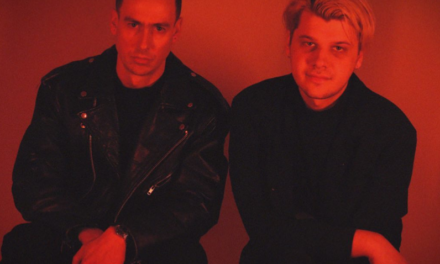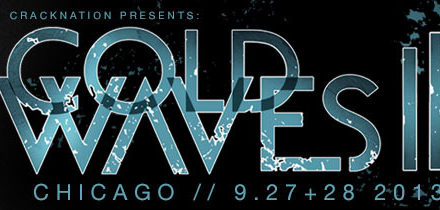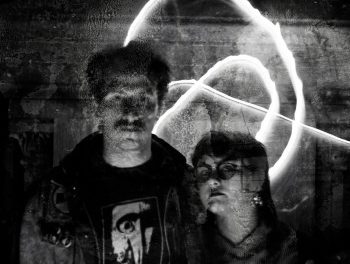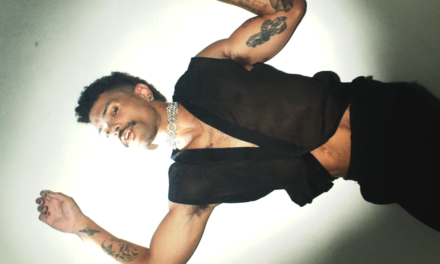We’re going through one of those gluts right now where it’s not even just a matter of keeping up with all of the new releases we’re interested in, it’s almost become a matter of triage in terms of what coverage we can offer which we think best reflects both the current shape of dark music and our own curatorial interests. Good problems to have in terms of writing about music to be sure, but it also stings knowing that you’re letting good stuff slip through the cracks just because it might be a tad similar to something you wrote about last week. In any case, here’s your weekly half dozen tracks to try to keep some of those losses at bay.
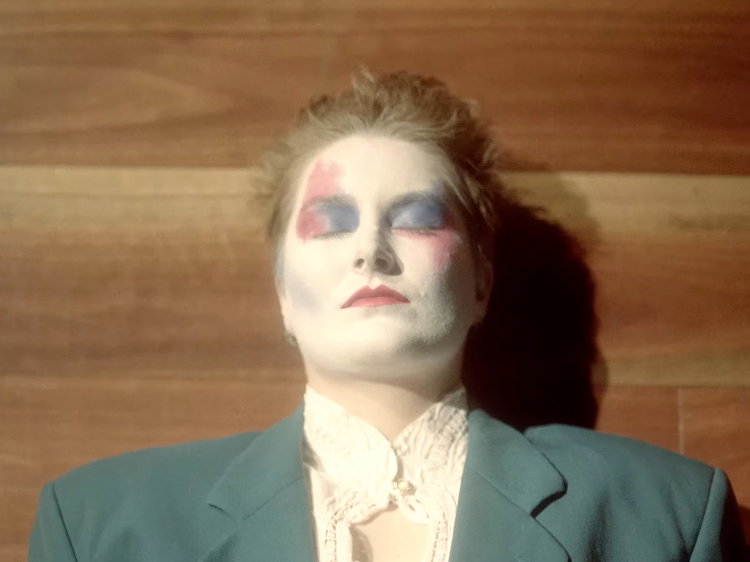
Hi Nu-Ro looks from Black Dahlia.
Black Dahlia, “Bodyguard”
Okay so when we got into Australia’s Black Dahlia, it was all about instrumental techno body bangers like “Trixie Mattel” and dark electro jams like “Primate Response”. The new song from the Australian artist is a very, very different, but no less appealing to us; “Bodyguard” is the kind of classic synth-driven art pop we will always carry a candle for, and it reveals a singing voice of considerable power we had no clue they possessed. If you want to hear something that sits between contemporary darkwave and classic sounds of the Laurie Anderson or Brian Ferry, listen to this now, like, right now. You might want to check out the video too, it’s a pretty important companion piece thematically and adds a lot to the theme of the track.
Autumns, “It Doesn’t Have To Be Sacred”
Tblisi’s Shishi Records have brought us quality records by the likes of Red Deviil and SPÆCIALISTA of late, but it’s their comps which have earned them their rep amongst those keeping their fingers on the pulse of cutting edge body music. New tape Specters And Hunters features plenty of acts we’ve covered here, from Meshes to Alpha Sect to Iron Court, but jumping right out of the gate with the track one on side one is Ireland’s Autumns. His hardware-driven, acid-heavy style always delivers, but the hypnotic washes and samples which coat this number should go off wonderfully on even the most conservative of dancefloors.
Flesh Field, “Wounds Of War”
Half remix record, half new material, Voice Of Reason follows up on last year’s Voice Of The Echo Chamber from the long-absent Flesh Field. As Ian Ross discussed with us upon its release, that record’s narrative was so closely honed it makes sense that there’d be a good amount of highly polished material which just didn’t quite fit its pace and story. In contrast to the decidedly industrial metal focus of Echo Chamber, a piece like this is entirely given over to Ross’ symphonic approach to electro-industrial.
XTR Human, “Neid”
Johannes Stabel’s solo work as XTR Human has a lot of dimensionality beyond body music – the Berlin producer performer and label head has integrated wave, synthpop and plenty of other styles into his productions in recent years. That doesn’t mean he can’t bring some straight EBM heat though, as demonstrated on “Neid”, the second taste of the forthcoming album SCHRANK. Check that punchy bassline and the chittery synths and orch hits, as well as Stabel’s more strident vocal delivery, it all just demands movement. That said the track does have some shading in its outro, which while no less propulsive, smooths things down in terms of the rhythm programming and gives the song some added heft.
Hans Åkerman, “Heavy Stones”
Following closely on the release of a new Run Level Zero track, we have a fresh EP from RLZ frontman Hans Åkerman. Enantiodromia has precious little of the Vancouver-school electro-industrial RLZ pay homage to, instead being made up of distinctly leftfield synthpop. This tune from Enantiodromia is one of a couple which bear at least a passing resemblance to a general Euro electro milieu, but despite the angst of the lyrics its instrumentation has a much more open and guileless approach to synthesis than one might expect.
Menthüll, “Parade”
We’ve been writing about Quebecois synthpop act Menthüll for a few years now, and have gotten to the “why aren’t more people talking about this band?” stage. Every song the duo put out is catchy, displays an understanding of electronic pop songwriting and production tropes, and those lovely dueted vocals. Lately they’ve been integrating bass guitar and some heavier percussion and bass to great effect, reminding us of Marsheaux and New Order by turns. If you haven’t yet had the pleasure, here’s “Parade” as good a place to start as any, chances are you’ll want to listen to more afterwards.

